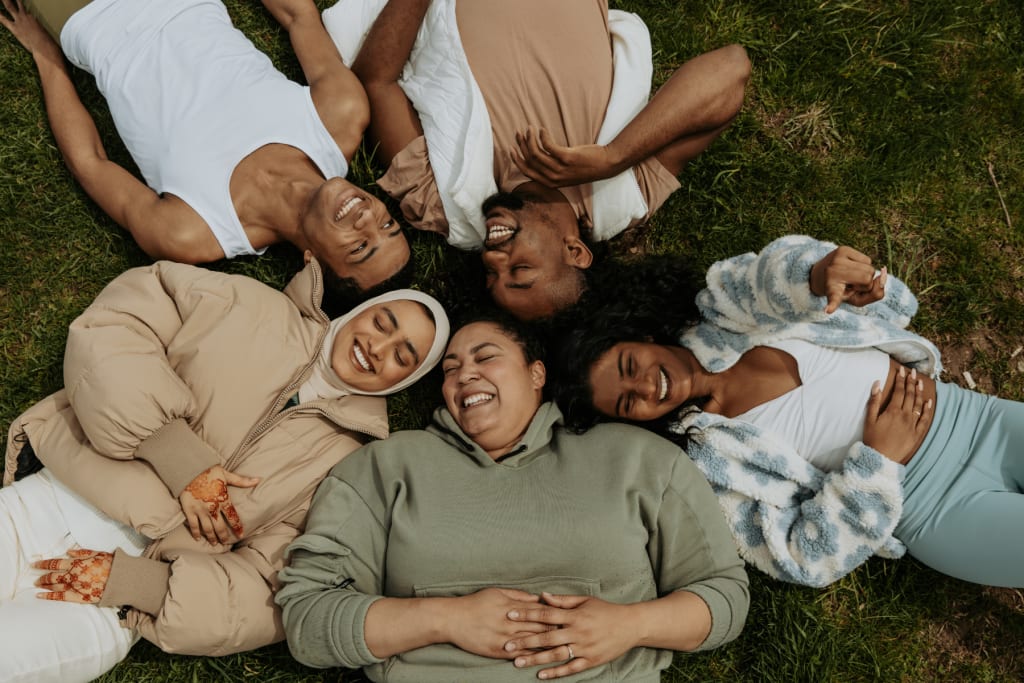What Happens to Our Social Circles as We Age?
Evolving Social Landscapes

The actors may change in the grand theatre of life, but the play continues. Friendship, an integral part of the human experience, is no exception to this rule. Friendship changes. It goes from childhood sandbox alliances to adulthood's complex social webs. It is in constant flux, shaped by the passage of time. But what exactly happens to our social circles as we age? Is there a science behind the friendships we make, keep, or let drift away? They drift away like boats untethered from their docks. This story delves into the complex dynamics of friendship. It explores how our social connections change across our lives. These changes show us about being human.
We must recognize that the science of friendship is complex. Psychological, sociological, and biological factors weave together. They craft the unique tapestry of our social lives. We will blend research, expert insights, and personal stories. We'll explore the changing nature of friendship. We'll uncover the forces that shape our social circles over decades.
Childhood friendships are often simple and pure. Shared interests and the basic human need for companionship drive them. Psychologists point out that these early bonds are crucial. They teach us empathy, trust, and cooperation. These bonds play a vital role in social development. Adolescence introduces a new layer of complexity to these dynamics. We are entering the stormy seas of teenage years. Friendships test our identities, beliefs, and aspirations. The bonds formed during this time are vital. They often mirror the ups and downs of teenage emotions.
The transition into adulthood brings about a significant expansion of our social universes. For many, this era is about exploration. People are exploring themselves, possibilities, and the world. College years, in particular, are a hotbed for forming new connections. A shared sense of discovery marks these friendships. They bond over navigating the freedoms and duties of adult life. It's a time when friendships can be fleeting. But they can also be impactful, leaving marks on our stories.
As we sail into our thirties and beyond, friendships begin to change. They change, but this period often sees a narrowing of social circles. Researchers attribute it to life's increasing demands. These include career, marriage, and children. They also blame it on a growing preference for quality over quantity in friendships. We do not value friendship any less now. Instead, our criteria for friendship have changed. Enduring friendships offer depth and understanding. They must also be willing to navigate the complexities of adult life together.
As we advance into the later stages of life, the theme of friendship takes on new dimensions. Retirement and the life changes and losses of aging can reshape our social lives. Yet, studies suggest that older adults often show remarkable resilience. They are good at adapting to these changes. Friendships are about companionship and mutual support. They reflect a desire for meaningful connections that go beyond the superficial. It's a time to reflect on the friendships that have stood the test of time. It's also time to cherish the new ones that enrich our lives.
Changing landscapes of friendship offers a chance to deepen our understanding. We can learn about ourselves and others. It invites us to embrace the complexity of human relationships. We must appreciate the many ways friendships enrich our lives. We must also acknowledge that closeness and distance are natural parts of life. Maintaining friendships becomes an exercise in adaptability, empathy, and introspection.
The science of friendship also shows that we must build these connections, especially as we age. Research suggests that solid social ties benefit our physical and mental health. They show that friendships bring joy and are vital to well-being. Investing in our friendships is crucial. It requires time, effort, and authentic engagement. It nurtures our quality of life.
As we look to the future, friendship is changing. This change brings challenges and opportunities. In a world mediated by technology, finding authentic connections requires intentionality. It calls for us to forge bonds. They must go beyond the superficial. We seek connections with depth and meaning. It also challenges us to be open to the many forms of friendship. They can enrich our lives. These include intergenerational friendships, cross-cultural connections, and bonds formed online.
Let us embrace the future of friendship. But let us remember the lasting power of human connection. Let us remember the role of friendships in our lives. They are not a source of pleasure but a crucial part of our humanity. Let us commit to building these connections with care. We know that the friends we nurture today will shape our shared future.
This look at the science of friendship is ending. I invite you, the reader, to consider friendships' role. Consider the bonds you've formed. Also, think about the ones you've kept and the ones you've let slip away.
What can you do to deepen these connections? You can reach out, rebuild, or thank those who stood by you through life's seasons.
In the end, friendship teaches us that our friends are not luck.
They reflect the choices and effort we put into them. It's a reminder that fostering real connections is a radical act of hope and humanity. We live in a busy and often disconnected world.

About the Creator
Charlene Ann Mildred Barroga
I'm a writer and content creator who loves to share tips on how to maximize your productivity and get the most out of your day. I






Comments (3)
Friendship gets more strong with time
Hey Charlene, I was just wondering, was AI assistance used for this article? If yes, Vocal does allow AI but we have to add a disclaimer that we have used AI, either in the subtitle, the beginning or the end of our piece. If we don't, Vocal may delete it. So just letting you know 😊
I am so fortunate, to still have the same best friend today as I did when I was 5 (30 years ago) I know this is not the case for everyone, great work here ❤️